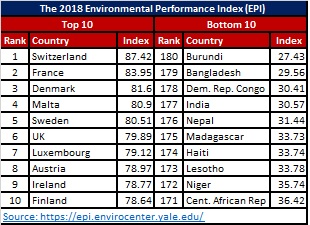The challenging economics of climate change
Global climate change has become one of the dominant discourses in the scientific and public policy arena. Studies from scientific research show that the global warming is now a real phenomenon, as there has been an unusually rapid increase in Earth’s average surface temperature over the past century primarily due to the unprecedented accumulation of carbon dioxide resulting from the burning of fossil fuels, together with emissions of other human-induced greenhouse gases. The effect of this temperature rise includes an increased frequency of severe weather events (such as heatwaves, hurricanes, and tornadoes), proliferated intensity of storms, and sea-level rise. These changes, no doubt, pose serious threats to the welfare and existence of mankind and other living things on earth through impacting on the functioning of the ecosystem, biodiversity, and human health.
The economics of climate change refers to the study of the economic costs and benefits of climate change, and the analysis of the economic impact of actions targeting at limiting its effects. However, the economics of climate change is challenging due to the fact that there are huge uncertainties in the estimation of both the costs and benefits related to climate change. The precision of the time horizon, over which benefits and costs of climate change would accrue, is debatable. Also, there are uncertainties over thresholds for climate change impacts and the pace and form of technological innovation that can take shape in the future.
Furthermore, the effects of climate change are not uniform across countries. Different parts of the world are likely to be affected differently: countries closer to North and South poles will experience warmer temperatures and once inhospitable land will experience melting of ice. Small island nations are at risk of extinction due to rising sea levels. Low lying islands and countries are at a greater risk of flooding both from rising sea levels and increased precipitation. Countries near the equator are likely to experience unbearable heat. Some of the countries are already experiencing more frequent events of severe weather.

The economics of climate change is further complicated by the fact that most of the developing countries can’t afford the costs of mitigation or adaptation of the aforementioned phenomenon of climate change. The 2018 Environmental Performance Index (EPI) of the Yale University ranks 180 countries on 24 performance indicators across ten issue categories covering environmental health and ecosystem vitality. These metrics provide a gauge at a national scale of how close countries are to established environmental policy goals. According to the EPI, most of the developing countries in the South dominate in the lower ranking. Among the bottom 10 countries in the ranking, three (Bangladesh, India, and Nepal) are from South Asia. Bangladesh’s position is 179 out these 180 countries.
There are also considerable debates in the discourse of climate change with respect to the policies and actions needed to address the challenges. Two instruments are widely referred to in the policy discussion. The first one is the carbon tax, which is the mandatory fee charged for the emission of a given quantity of carbon dioxide or some other greenhouse gas. The second one is carbon trading, which is buying and selling of carbon credits, abstract instruments (like money) that each represents the right to emit 1 ton of carbon dioxide or an equivalent amount of other greenhouse gases. The other policies include technology promoting programs. One more instrument, which is less explored but can be effective, is the liberalization of trade in environmental goods (EGs), which can play a crucial role in protecting the environment as well as promoting international trade in EGs. Trade has a positive effect on the environment only if environmental policy advances alongside trade liberalization. However, most of the developing countries are seriously lagging behind in conceptualizing as well as in building national capacities to implement these aforementioned instruments.
One important challenge in the economics of climate change is the political economy aspect of it. Both the global and national political economy factors are critical in addressing climate change issues. USA President Donald Trump’s unfavorable attitude towards the warning of devastating effects from climate change, and eventually the USA’s withdrawal from the Paris climate agreement has created huge uncertainties for a global partnership. At the national level, many developing countries, due to their national priorities of industrialization and lobbying power of different quarters, find it extremely difficult to contain the polluting industries. Therefore, the developing countries have uphill tasks in the future given the aforementioned challenging economics of climate change.


RECENT COMMENTS